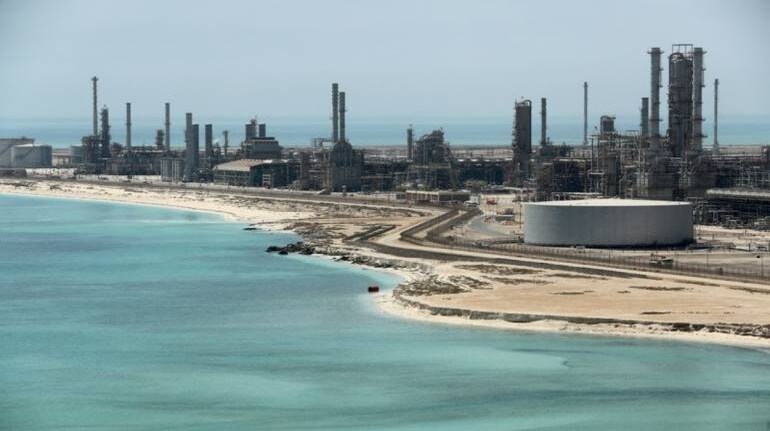



India has revived preliminary negotiations for a free-trade pact with the Gulf Cooperation Council (GCC) after more than a decade and official negotiations may start in a few months, commerce department officials said. A deadline of end-2022 has been set for completion of the initial discussions.
The GCC consists of the six oil-rich economies of Bahrain, Kuwait, Oman, Qatar, Saudi Arabia, and the United Arab Emirates. Initial talks on a trade pact fizzled out in 2008 after the bloc decided to disengage from all negotiations.
However, India’s discussions on reviving the negotiations started in 2021 and the signing of the Comprehensive Economic Partnership Agreement (CEPA) between India and the United Arab Emirates last week has provided additional hope.
The CEPA can serve as the template for a larger pact with the GCC because of the broad similarities in the trade basket, economic mix, growth patterns, and socio-political nature of the council members, senior commerce department officials told Moneycontrol.
The GCC is a regional, intergovernmental political and economic union with wide levels of policy integration on taxation and investments, and a free-trade deal would help India solidify its economic relations with the region, they said.
However, officials stressed that extensive talks, with significant political backing from both sides, could not complete India’s previous negotiations with the GCC.
“Since the UAE economy is the most diversified, as well as the most dependent on skilled migrants, it offers unique advantages to India to seek benefits in liberal services trade norms,” an official said. “The same is not true for all the other GCC nations and there are different levels of expectations from a prospective pact,” he added.
India’s trade with the six GCC nations stood at $120 billion in 2019-20, just before the coronavirus pandemic hit. It fell to $87.2 billion in 2020-21, and stood at $108.8 billion in the April-December period of the current financial year.
Sources said that similar to the CEPA signed with the UAE, all investments and infrastructure projects being discussed with the GCC will continue to be dealt with on a bilateral basis and have little chance of being part of the proposed trade pact. These are being reviewed by either the Ministry of External Affairs, the Prime Minister’s Office or line ministries, they added.
 India's trade with GCC dominated by oil imports from the Gulf regionStory so far
India's trade with GCC dominated by oil imports from the Gulf regionStory so farA Framework Agreement on Economic Cooperation between India and the GCC was signed on August 25, 2004, and subsequently, two rounds of negotiations were held in 2006 and 2008.
While the scope of the talks was expansive initially, the discussions did not progress to the point where specific lines of trade could be negotiated. The framework agreement was also vague and did not focus specifically on any product category.
A third round of talks was never officially held until now because the GCC had deferred negotiations with all countries and economic groups for a review.
“This has changed in recent years. Interested parties spread across the GCC nations have pushed for the resumption of talks between India and the GCC at various bilateral and multilateral forums,” a senior official said.
 UAE & Saudi Arabia account for overwhelming majority of trade with GCCMajor hurdles
UAE & Saudi Arabia account for overwhelming majority of trade with GCCMajor hurdlesIndia has not come on record to clarify the specific challenges in concluding a proposed trade deal with the GCC. However, officials have said on condition of anonymity that wide differences in political objectives among the GCC states had been a major factor.
Rising protectionism in safeguarding jobs for the local population as well as securing the interests of domestic manufacturers across the region, especially in Saudi Arabia, led to difficulties in India pursuing talks on trade in services with these nations, they added.
The UAE is already India’s third-largest trade partner, with trade flows set to rise significantly as the CEPA regime begins. However, a proposed deal that manages to establish lower tariffs and greater market access for the rest of the GCC nations may not necessarily lead to them also joining the UAE.
“This is because while any deal would ensure that more exports from India find their way to the region, little, if any, made-in-GCC products would be imported to India, beyond crude oil and some petrochemicals. As a result, some GCC nations were not sold on the need for an FTA,” said a senior trade negotiator who was part of the original talks.
“Instead, similar to the CEPA signed with the UAE, a prospective deal with the GCC would allow Indian manufacturers to gain access to a rich consumer market, establish a foothold in the region, and bolster trade with neighbouring regions such as East Africa,” he added.
As of April-December, Saudi Arabia was India’s fourth-largest trade partner, followed by Qatar (22nd), Kuwait (27th), Oman (33rd) and Bahrain (60th). An estimated 88 percent of India’s trade with the GCC is made up of bilateral trade with the UAE and Saudi Arabia.
Discover the latest Business News, Sensex, and Nifty updates. Obtain Personal Finance insights, tax queries, and expert opinions on Moneycontrol or download the Moneycontrol App to stay updated!
Find the best of Al News in one place, specially curated for you every weekend.
Stay on top of the latest tech trends and biggest startup news.